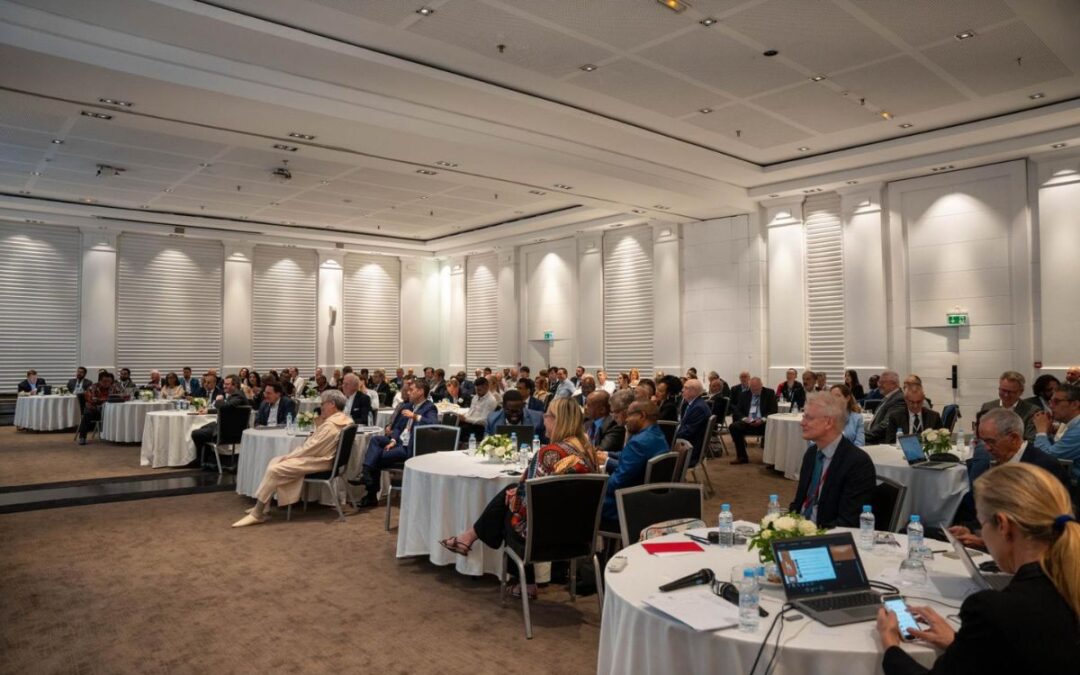
CLIENT ALERT : EQUATORIAL GUINEA
NEW GENERAL LABOUR LAW
WHAT HAS HAPPENED?
The Parliament of the Republic of Equatorial Guinea (“EG”) has enacted Law No. 4/2021, dated 3rd of December, on General Labour (“GLL”) to meet the demands and challenges presented by the labour market and to adapt to the economic policies drawn up by the Government. The law has the objective of implementing a model of labour relations capable of creating new employment opportunities, facilitating recruitment, and incentivising stable employment.
WHAT ARE THE CONSEQUENCES?
- The GLL replaces and repeals the previous Law No. 10/2012, dated 24th of December, on the Reform of the General Labour Law.
- The GLL continues to be supplemented by other laws and regulations in the labour sector, including the law regulating the minimum wage , the national employment policy laws, and the social security laws but the government aims to review and update these other laws and regulations.
- Introduction of new policies in labour relations with respect to all companies, including the self-employed operating in the Equatoguinean territory.Greater clarity on the requirements and the procedure applicable to recruit personnel
- The GLL modifies important provisions on the types of previously existing employment contracts and introduces other types of employment contracts such as employment contracts for the launch of a new activity, employment contracts for student who are interns discontinuous fixed employment contracts, contracts for management and senior management, contracts for professional athletes and artists, group employment contracts, etc.
- Incorporation of the illegal assignment of employees, produced when a company that is not a Temporary Employment Agency hires an employee for assignment to another company. The consequence of classifying the assignment as unlawful gives the employee certain rights previously non-existent.
- The periodicity for the submission of periodic information by companies to the Ministry of Labour has been modified.
- The determination of the probation period based on the professional qualification of the contracted employee has also been changed.
- Work outside the place of residence has undergone changes in relation to the monthly salary bonus paid to employees who have a certain “stability” link with the employer.
- The GLL has removed the exception that excluded offshore employees outside the oil sector from benefits previously granted to offshore employees in the oil sector.
- Specification of the deadline for the performance of medical examinations to employees who do hazardous or unhealthy jobs.
- The GLL establishes the concept of, and a procedure for, the substantial modification of working conditions, which allows the employer to unilaterally change the working conditions of an employee (working day, shift, remuneration, volume of work or duties) due to economic, organisational, technical or productivity reasons.
- The Ministry of Labour is empowered to ensure strict compliance with the GLL.
- The GLL entered into force on the 3rd of January 2022. However, the Ministry of Labour granted a grace period of 60 days for its adaptation and effective implementation. This grace period ended on the 3rd of March 2022.
WHAT SHOULD YOUR COMPANY DO?
Legal Advice
Contact your legal advisors to review the GLL in detail and determine which new requirements would affect your company’s operations.
Review and Analysis of the new GLL
Meticulously review and analyse the content of the GLL with your legal advisors.
Presentation of the new GLL to the HR Department
Ask your legal advisors to prepare a presentation on the new GLL for your HR department.
Adaptation and Approval of the Internal HR Regulations
In collaboration with their legal advisors and the HR department, adapt your company’s internal HR regulations to the new GLL and obtain the approval of the Ministry of Labour as required by law.
Presentation of the New Internal HR Regulations to the Company’s Management and Employees
Organise sessions to present the new internal HR regulations, first to your management team and then to the employees, implementing any changes contemplated.
Labour Related Audit
Perform a labour related audit after 6-12 months, to assess the correct application of the GLL and the ramifications internally, as well as the interpretation of the new GLL by the Ministry of Labour and the Courts of E.G.
Monitoring
Continue to monitor any subsequent modifications and changes to other applicable laws and regulations.
WHAT CLARENCE OFFERS
Clarence offers its clients:
- A dedicated, responsive, and internationally qualified team with experience in a wide range of transactions in Hispanophone, Francophone, Anglophone, and Lusophone countries;
- Working with one of the leading firms in Central Africa, with the best team specialised in oil and gas transactions led by one of the best energy lawyers in the region, our Managing Partner, Abraham Abia;
- Creative and cost-effective advice;
- Global coordination with Clarence’s international network of law firms and lawyers;
- Good working relationship with key stakeholders in the countries where we operate, particularly with regulators; and
- Lawyers that uphold the highest ethical standards in compliance with anti-corruption laws and regulations.
For enquiries, please contact us at info@clarenceabogados.com



